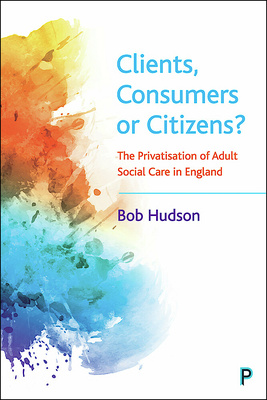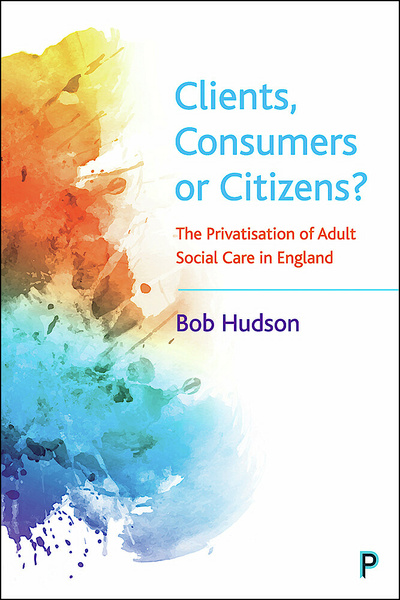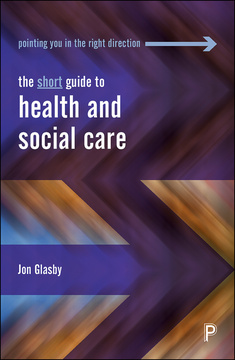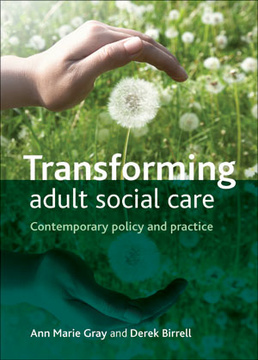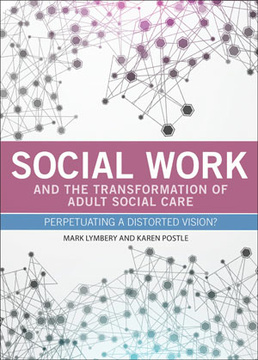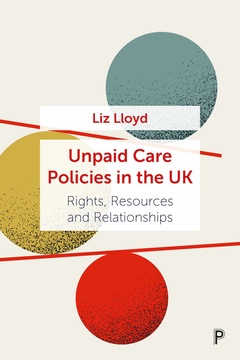Published
Jun 21, 2021Page count
194 pagesISBN
978-1447355700Dimensions
234 x 156 mmImprint
Policy PressPublished
Jun 21, 2021Page count
194 pagesISBN
978-1447355694Dimensions
234 x 156 mmImprint
Policy PressPublished
Jun 21, 2021Page count
194 pagesISBN
978-1447355724Dimensions
234 x 156 mmImprint
Policy PressPublished
Jun 21, 2021Page count
194 pagesISBN
978-1447355724Dimensions
234 x 156 mmImprint
Policy PressAdult social care was the first major social policy domain in England to be transferred from the state to the market. There is now a forty-year period to look back at to consider the thinking behind the strategy, the impacts on commissioners and providers of care, on the care workforce and on those who use care and support services.
In this book, Bob Hudson meticulously charts these shifts. He challenges the dominant market paradigm, explores alternative models for a post-Covid-19 future and locates the debate within the wider literature on political thinking and policy change.
“With COVID-19 exposing the tragic neglect of adult social care and provoking fundamental debates about what the future should hold, Hudson’s analysis of morals, markets and power is a must read.” Jon Glasby, University of Birmingham
“A superb exposition of how we ended up with a predominantly private market in social care and what we can do about it. An authoritative contribution to the debate about social care reform.” Richard Humphries, The Health Foundation
Bob Hudson is Visiting Professor in Public Policy at the University of Kent. Prior to this, he held posts at the universities of Durham, Leeds and Glasgow, and at New College Durham.
Introduction
1 Before the market
2 The emergence and consolidation of the market
3 Dilemmas in the commissioning of adult social care
4 Dilemmas in the provision of adult social care
5 State or market?
6 Context: funding and administration
7 Looking ahead: an ethical future for adult social care
8 COVID-19: the stress test of adult social care
9 Conclusion: making it change – morals, markets and power







